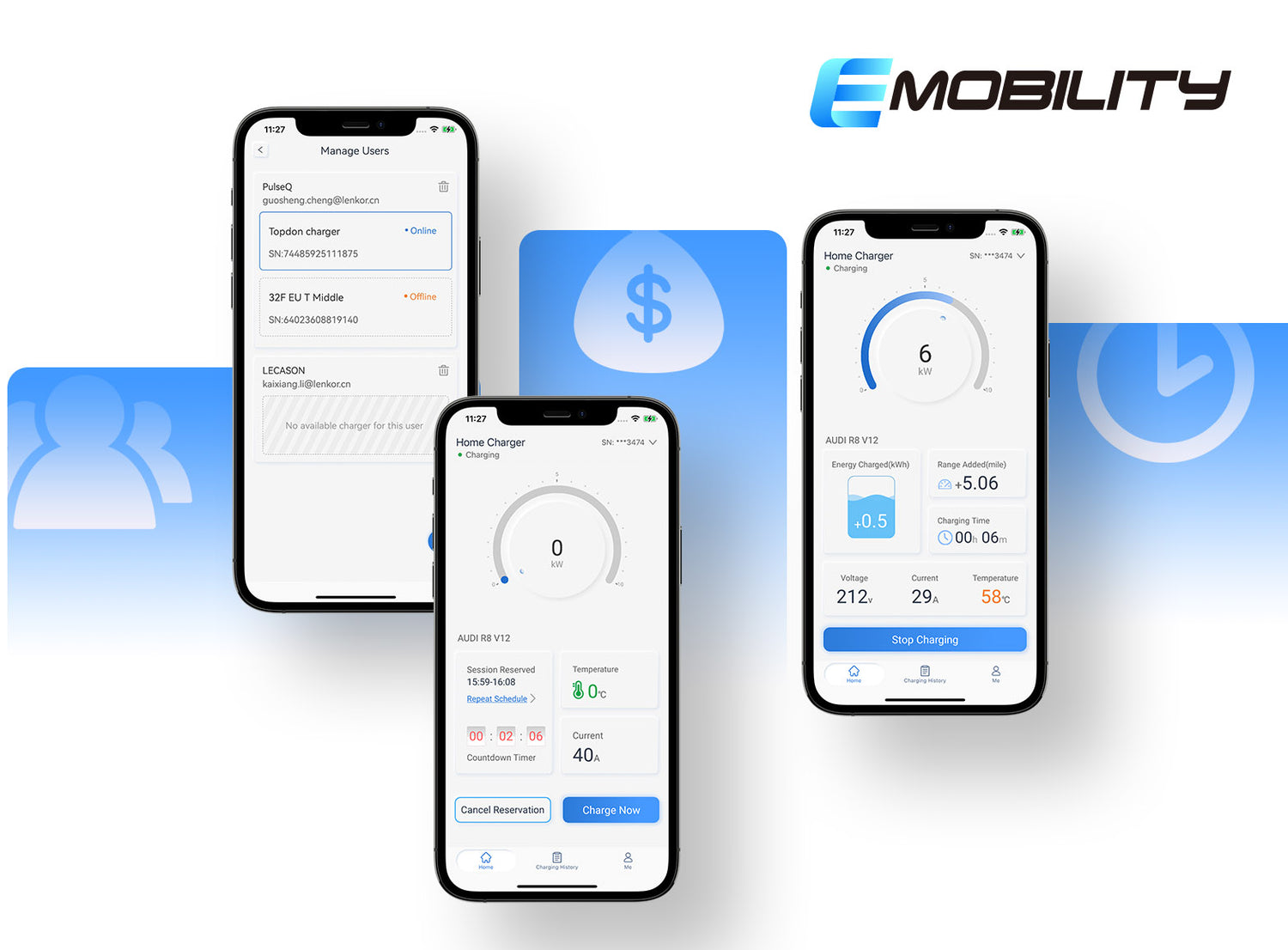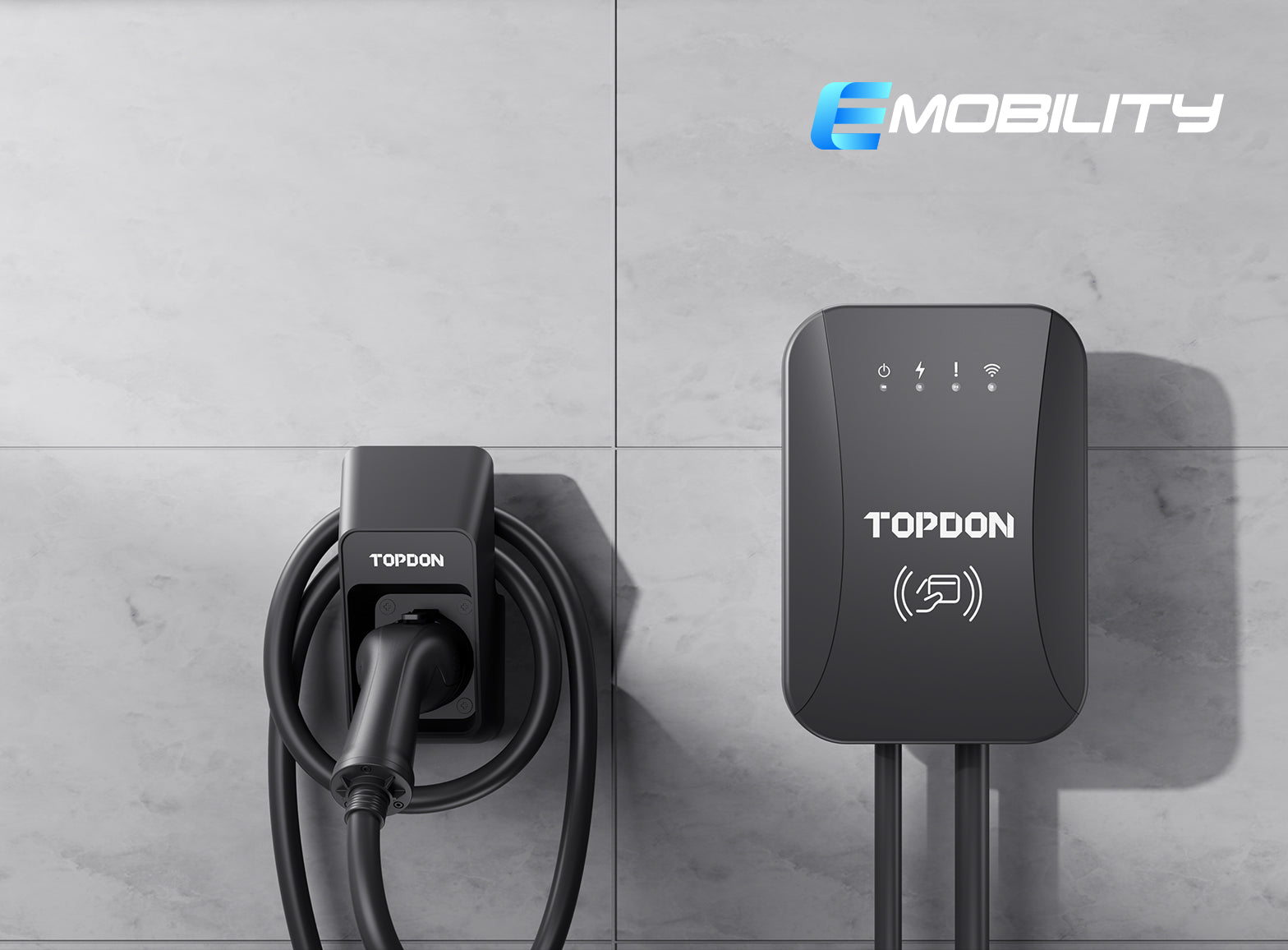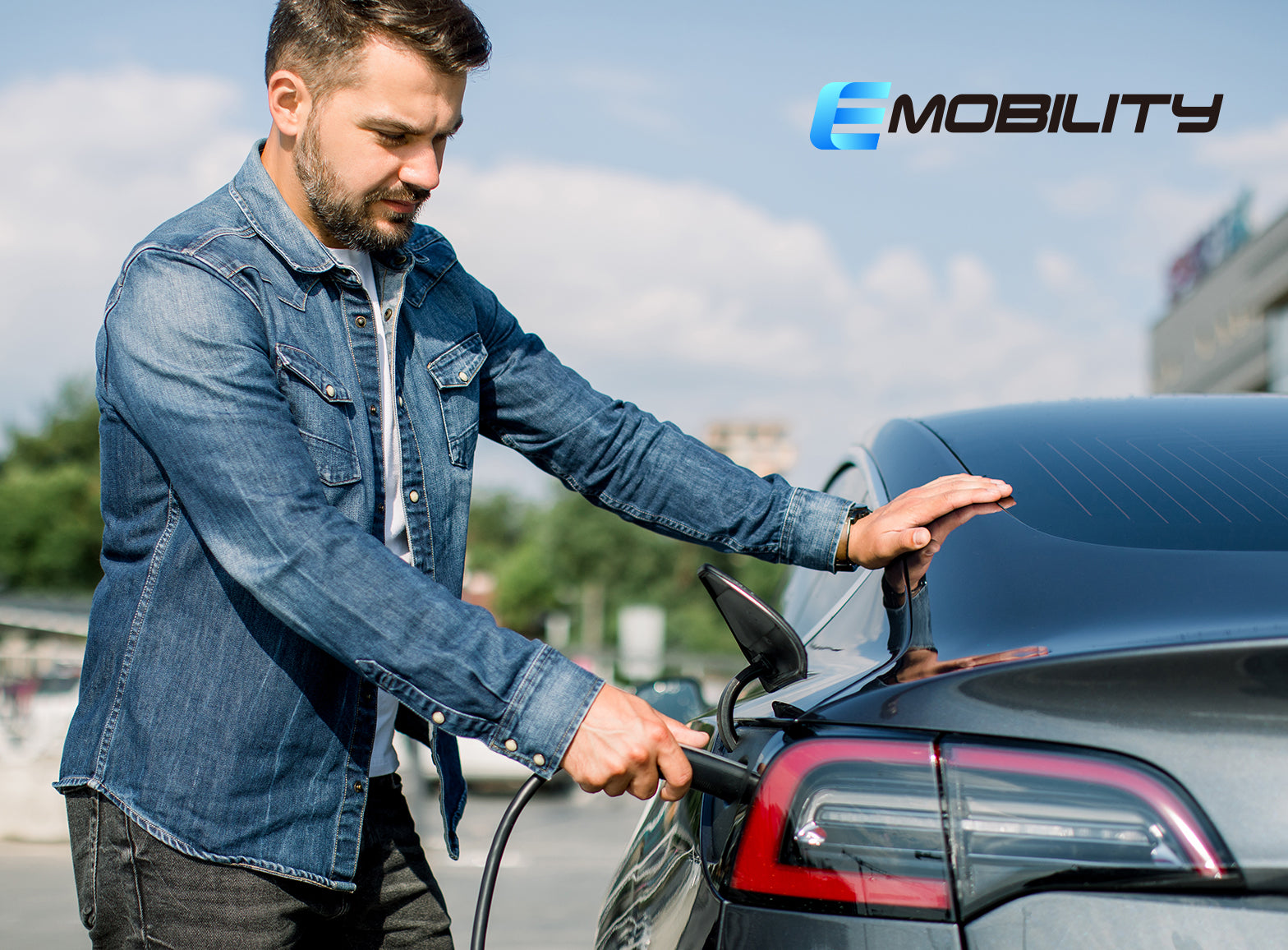What are EV Chargers or EVSE?
The technical terminology for EV chargers is Electrical Vehicles Supply Equipment (EVSE) and just like there are multiple types of EVs prevalent in the automobile sector, there are several classifications and levels of EVSE or EV chargers. From their deployment perspective, EV chargers are typically categorized into two main types: the domestic scale or home EV chargers and the commercial scale EV chargers. Both of these types serve a single purpose. They take energy from the electrical grid and deliver it to the battery packs of an EV while smartly monitoring and regulating the energy flow through their software and electronics framework.
Voltage Levels Difference Between Home EV Chargers and Commercial Scale EV Chargers
Levels of EV Chargers
The operational hierarchy of both commercial and domestic EVSE systems is coinciding. Their main difference is based on their voltage levels and current configuration (AC or DC). Generally, three voltage levels are existing in these EVSEs:
1.Level 1 and Level 2 which are referred to as domestic or home-scale EV Chargers
2.Level 3 which is known as the commercial scale or DC fast charging EV Charger
What Is Their Main Difference?
Level 1 and Level 2 Chargers
1.Level 1 charging comprises the conventional AC 120 V wall plug and is the most common EV charging system used at the domestic scale worldwide. These systems have a very slow speed when it comes to charging an EV to its full capacity. Normally, they are recommended to be used for an overnight charge because it might take somewhere between 16 to 24 hours to reach the maximum level of the EV battery pack. Where on one side their charging speed is notoriously slow, their perks include a simple installation procedure with no need for a custom-built wall plug. Also, they can just conveniently charge your EV in the garage of your own home. After a night’s charging, EVs can meet the mileage requirement of the next day very easily.
2.Contrarily, Level 2 chargers utilize the AC 240 or 480 V supply and are the second most common choice for residential EVSE and small-scale commercial EV charging points. The distinction they offer is their improved charging speed which is almost 10 to 15 times faster than the Level 1 EVSE. They can completely charge an EV battery within a couple of hours compared to a night-long duration of Level 1 home chargers. Even though there is a minor price difference between Level 1 and Level 2, Level 2 is regarded as an optimum value-for-money investment for those EV owners who are seeking a personalized EV charger.
Level 3 DC Fast Chargers
These chargers operate on the DC configuration at a voltage level exceeding 480 V and are known for performing charging at an exceptionally fast rate. DC configuration allows to directly contribute to EV batteries which require a DC supply without doing any AC to DC conversion. In contrast, AC-based Level 1 and 2 chargers supply AC which is then converted by the EV into DC and then fed to the battery. This is not only time-consuming but also causes conversion losses resulting in a sloth performance.
Fast action makes them an ideal choice for commercial-scale applications where they exist in three main classifications:
1.Combined Charging System (CCS)
2.CHAdeMO (“CHArge de MOve”)
3.Tesla Supercharger
What Should You Choose: An EV Charger In Your Home or Commercial Charger Miles Away?
Commercial Electrical Chargers Are Not That Ideal
While considering the merits of fast-charging commercial EVSE, they seem like an ideal choice to meet the charging needs of your EV. However, analyzing the complete picture proves that an EV charger installed at your residence would prove to be a far more fruitful investment compared with subscribing to a continuous loop of commercial EV charger dependency.
With their competitive edge in performance and charging speed, commercial EVSEs are still beaten back due to the following demerits:
1.Availability
Commercial chargers are not readily available in small cities and remote areas so keeping an EV there while considering commercial charging as a primary source is not feasible. Even in big cities, there is always an imbalance between supply and demand. Large queues and delays are a big problem.
2.Prices Are An Issue
Prices such as tariffs from commercial chargers are burdening. Even though they are cheaper than gasoline or diesel prices. Still, there is a significant gap existing between commercial and home EV charging prices.
3.Time Is Money
EV charging through commercial chargers requires waiting and in the age when time is money, this is not acceptable for consumers. They need a charger that can keep their vehicle ready whenever it is needed without any waste of time.
4.Battery Degradation
Fast chargers have one big problem their rigorous usage makes them faulty and damaged. Even in healthy conditions, consistent usage of fast commercial chargers critically mitigates the health of battery packs and shortens their lives.
A Medium Speed Charger In Your Garage Is Better Than A Fast EVSE Miles Away
Installing an EV charger can be your next greatest investment. Why? Well, the answer is simple. They not only uplift the experience of owning an electric vehicle but also provide a one-stop solution for your charging requirements right inside your home. We have sorted out some of the top advantages of home EV chargers as follows:
1.Convenience
It is right there in your home. You can plug it in at night and take it off the next day without any queue or hassle. You can monitor and control via a mobile application and easily manage its performance.
2.Boosts Your Property Value
Having an EV charger mounted in your home gives a competitive edge while selling or renting your home and boosts its value by making it more desirable.
3.Financially Feasible
Financially, it is way more feasible compared to commercial chargers. The overall tariff is lower. If you purchase from a brand like TopDon, these benefits get quadrupled.
4.Safe Performance
No damage to your battery, and no surges or leakages, unlike some faulty chargers which damage the circuitry of an EV. Moreover, software-based regulation can be done via their respective applications.
Topdon PulseQ EV Charger: The Top Choice for Your Home EV Charging Setup
Why PusleQ EV Charger Is The Best Choice?
All of the above-mentioned benefits of a home EV charger are only possible if you choose the right choice for your EV charger system. When you are performing an investment in a domestic EVSE, you should make sure that the selected charger does not only serve you perfectly according to the benchmarks of quality and efficiency and also prove itself feasible both performance-wise and economically.
At TopDon, we have been determined to collectively combine these features in our products and deliver our esteemed customers the best products for their valuable vehicles. Our PulseQ EV Home Charger is a splendid effort in this regard based on top-notch research and development and is a sheer reflection of our vision of quality and performance.
Salient Features and Advantages of PulseQ EV Charger
1.Versatility
It is available in US, EU, and GBT versions with both IEC 62196-2 Type 2 and J1772 connector schemes. Hence, it transcends the brand barriers and can efficiently charge EVs of brands such as Tesla (adapter needed), Ford, GM, Volkswagen, Nissan, Audi, etc. It can be your best investment if you own several EVs of multiple brands.
2.Easy To Install, Easier to Maintain
The design is compact and the installation process is next to seamless. It takes only 15 minutes and you can start fueling your vehicle. It takes very little room to install and is quite lightweight which makes its transitions or maintenance quite convenient.
3.Endurance and Safety
The charger comes with multiple protective layers of thermal, electrical, and mechanical safety. It can perform in extreme temperatures from -30℃ to 55℃ making it highly endurable. Moreover, it is water-resistant and can even operate in high humidity levels of up to 95 percent.
4.Meeting The Best Quality Standards
Topdon claims proudly that our product is certified with UL Listed Level 2 AC EV Charger for the US market and CE, LVD, RED, and RoHS certification for the EU market. These are the evidence for our top-rated international quality and elite manufacturing standards.
5.Purpose Built Application
Through its purpose-built mobile application, the users have a high degree of control and monitoring of EV charging activity. It can help to schedule, regulate, and customize the charger from any corner of the world as every charger is online. Furthermore, it provides insight into EV performance and charging health that can help to plan for checkups and inspections of vehicles.




Leave a comment
This site is protected by hCaptcha and the hCaptcha Privacy Policy and Terms of Service apply.